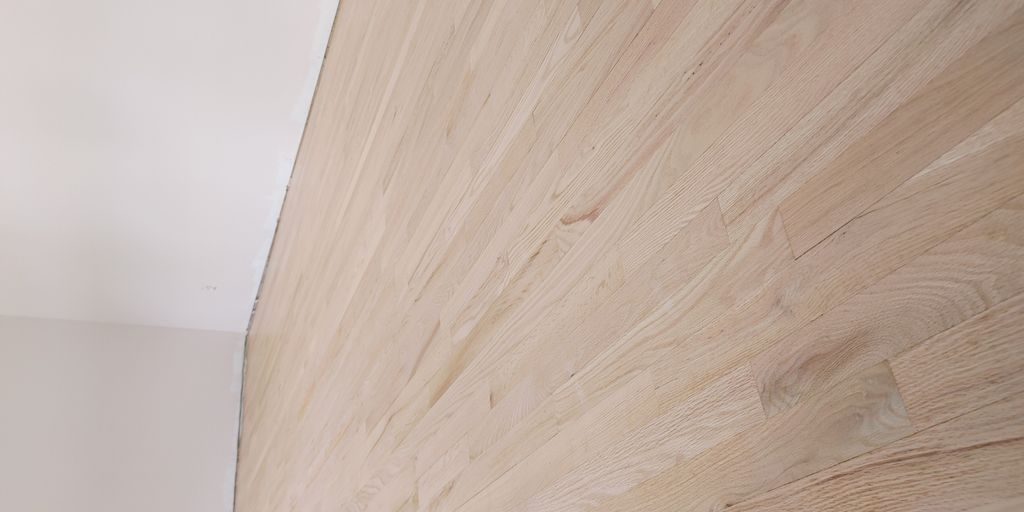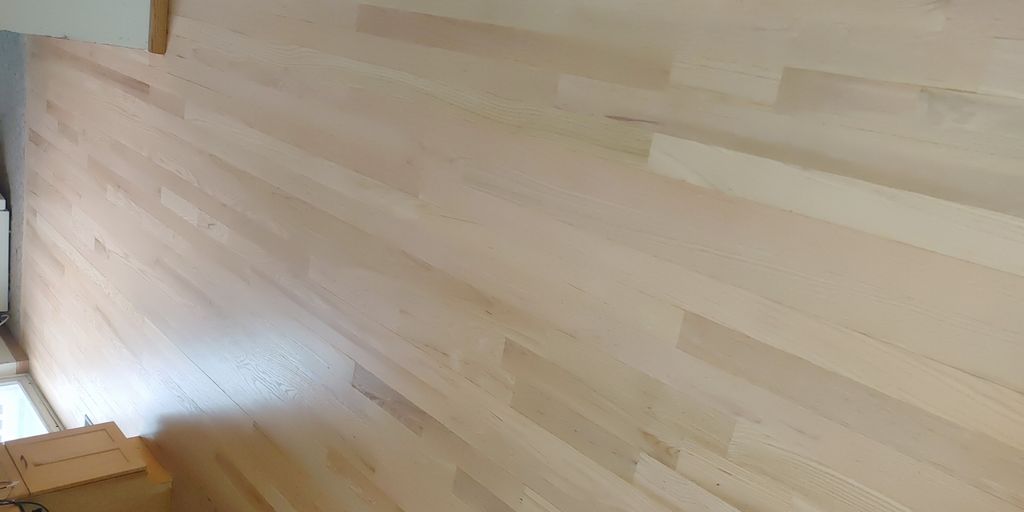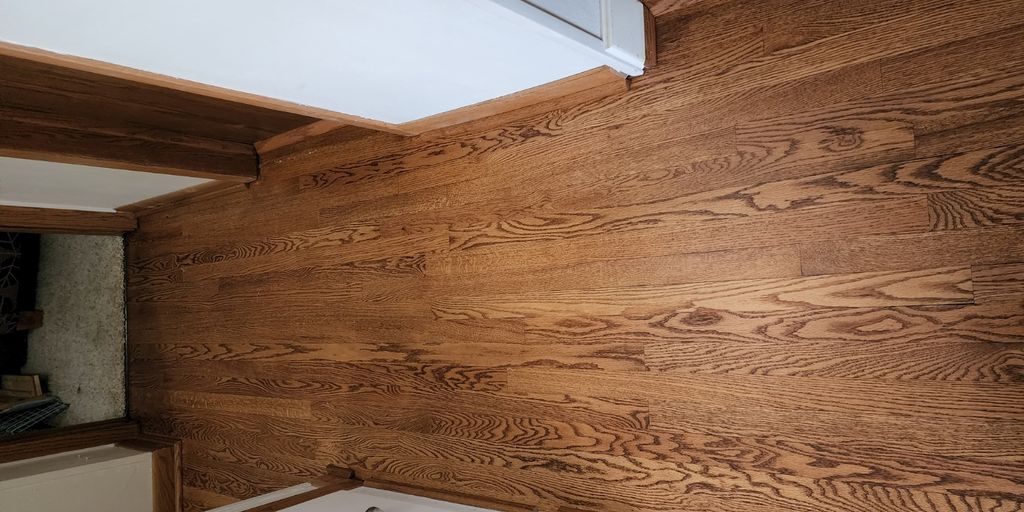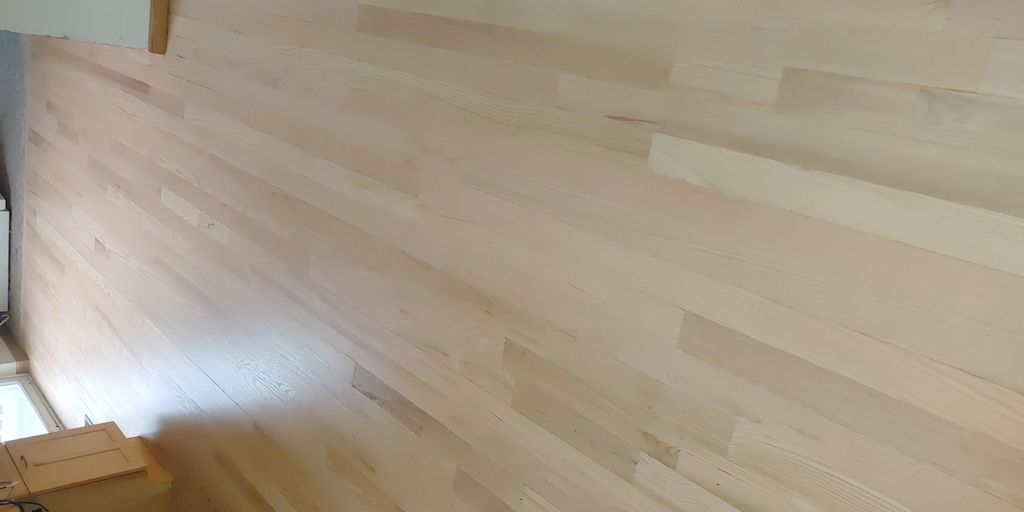1. Local Specialty Flooring Stores
When you’re thinking about installing new hardwood floors, starting your search at local specialty flooring stores is a smart move. These stores often provide a wide array of options, from classic oak to exotic teak, that you might not find in big-box retailers. Shopping locally not only supports your community but also gives you access to unique choices that can make your home stand out.
Thank you for reading this post, don't forget to subscribe!Local flooring professionals at these stores usually offer personalized advice to help you select the right wood for your home. They can guide you through the process, considering factors like foot traffic, room lighting, and your personal style. Plus, many of these stores have connections with trusted local flooring refinishers and installers, ensuring a seamless experience from purchase to installation.
Benefits of Choosing Local Specialty Stores
- Expert Guidance: Get tailored advice from knowledgeable staff who understand the nuances of hardwood flooring.
- Unique Selection: Discover a variety of wood species and finishes not commonly available elsewhere.
- Community Support: By buying local, you help sustain small businesses in your area.
Local hardwood flooring services often provide a more personalized touch, understanding the specific needs of homeowners in the area. This can lead to better customer satisfaction and a more customized flooring solution.
Before making your final decision, visit a few local stores to compare their offerings. Ask about any warranties or installation services they might offer. You might even find some great deals or promotions that aren’t advertised online. Remember, the right flooring choice can transform your space, so take your time to explore all the options available in your community.
2. Home Improvement Retailers
Big-box home improvement retailers are a go-to spot for many when it comes to finding hardwood flooring. These stores offer an extensive array of flooring options at prices that often beat smaller shops. Convenience is the name of the game here—you can pick up everything you need for your flooring project in one trip, from the wood itself to the tools required for installation.
Key Considerations
- Price Comparison: Always compare prices across various brands and types of wood to ensure you’re getting the best deal.
- Installation Packages: Look out for special deals that might include installation services. This can save you money and hassle.
- Online Tools: Many retailers provide online resources to check stock availability and even visualize how different floorings might look in your space.
When you’re planning a home renovation, these retailers can be a one-stop shop, offering not just materials but also advice on installation and maintenance. Their wide selection and competitive pricing make them a viable option for many homeowners.
For those in the Greater Boston area, TDS Flooring’s affordable options provide a great alternative to big-box retailers, offering both stylish and budget-friendly choices for every room.
3. Online Resources for Local Suppliers
In today’s digital world, finding local hardwood flooring suppliers has never been easier. The internet is a treasure trove of information that can help you discover suppliers, compare prices, and read customer reviews—all from the comfort of your couch. This convenience is unmatched, making it a go-to resource for many homeowners.
Key Online Tools to Explore
- Price Comparison Websites: These platforms allow you to compare costs from various suppliers, ensuring you get the best deal for your budget.
- Customer Review Sites: Sites like Yelp and Google Reviews are invaluable for getting real feedback from other homeowners about their experiences with local suppliers.
- Virtual Consultations: Many suppliers offer online consultations or chat services to answer your questions quickly and efficiently.
Remember, while online resources are fantastic for initial research, it’s always wise to visit a showroom to see and feel the product before making a final decision.
Exploring these online avenues not only saves time but also helps in making informed decisions about your flooring needs. Whether you’re looking for the timeless appeal of hardwood flooring or seeking expert advice on maintenance, the internet has got you covered.
4. Professional Installation Services
When it comes to setting up hardwood floors, hiring a professional installation service is often the way to go. They bring expertise that ensures your floors are laid perfectly. Why go pro? Professional installers have access to high-quality materials and tools, which you might not find easily. Plus, they know how to handle tricky spots like corners and doorways, ensuring a seamless look.
Going with a pro means less stress and a smoother process. You get peace of mind knowing that your floors are in capable hands.
Benefits of Professional Installation
- Quality Assurance: Professionals ensure that flooring is laid correctly, which enhances its durability and appearance.
- Warranty Protection: Many flooring warranties require professional installation to remain valid.
- Time Efficiency: Experienced installers can complete the job faster and more efficiently than DIY attempts.
Choosing the Right Service
When selecting a professional service, consider their experience and reputation. Check if they offer a range of services like custom stair solutions or maintenance. Look for companies that provide comprehensive services, from consultation to final inspection, like 3rd Gen Flooring in the Michiana area.
Final Thoughts
Hiring professional installers not only guarantees a polished finish but also saves you from potential headaches down the road. It’s about investing in a job well done, providing you with beautiful, durable floors that enhance your home’s value and appeal.
5. DIY Installation Tips
Thinking about installing hardwood floors yourself? It can be a rewarding project, but requires careful planning and the right tools. Here’s a guide to help you through it.
Pre-Installation Preparation
Before you even think about laying down those planks, you need to prep your space. Clear the room entirely, ensuring it’s free of furniture and any debris. This not only gives you room to work but also prevents any accidental damage.
- Check the Subfloor: Make sure it’s clean, dry, and level. Any unevenness can lead to squeaks or gaps in your new floor.
- Acclimate Your Wood: Let your hardwood sit in the room where it will be installed for a few days. This helps the wood adjust to the room’s temperature and humidity, reducing the risk of warping.
- Gather Your Tools: Ensure you have all necessary tools like a saw, nail gun, measuring tape, and safety gear.
Installation Process
Once your space is prepped, it’s time to start laying the floor.
- Measure Twice, Cut Once: This old saying holds true. Double-check your measurements before making any cuts to avoid costly mistakes.
- Follow Manufacturer Instructions: Each type of hardwood can have specific installation guidelines. Stick to them closely to ensure a smooth process.
- Mind the Gaps: Leave a small expansion gap around the room’s perimeter to allow for natural wood expansion.
Post-Installation Care
After your beautiful new floor is in place, you’ll want to keep it looking its best.
- Regular Cleaning: Sweep or vacuum regularly to remove dirt and debris that could scratch the surface.
- Protective Measures: Use felt pads under furniture and avoid dragging heavy items across the floor.
Remember, while DIY can save money, it’s important to be prepared. Mistakes can lead to costly repairs down the line. For those unsure about tackling this project, custom flooring installation might be a better fit, offering tailored solutions to meet your needs.
By following these steps, you can achieve a professional-looking installation that enhances your home’s beauty and value.
6. Common Installation Mistakes to Avoid
Installing hardwood floors can transform a house, but it’s easy to stumble into pitfalls if you’re not careful. Here’s a lineup of common mistakes you definitely want to dodge:
- Skipping the Acclimation Process: Hardwood needs to adjust to the room’s humidity and temperature before installation. Skipping this step can lead to warping and gaps later on.
- Ignoring Subfloor Preparation: A solid foundation is crucial. Ensure your subfloor is clean, dry, and level to prevent future issues like squeaks or uneven surfaces.
- Incorrect Measurements: Measure twice, cut once—this old adage holds true. Miscalculations can lead to wasted materials or a shortage, both of which are costly.
- Poor Adhesive Application: If you’re using glue, spread it evenly. Uneven glue can cause bubbles or sections to lift over time.
- Wrong Nail Placement: Proper nailing is key to avoiding squeaky floors. Make sure nails are placed correctly to secure the planks firmly.
Taking the time to plan and prepare can save you from headaches and costly mistakes.
Avoiding these common errors ensures your hardwood floors not only look great but also stand the test of time. Whether you’re going DIY or hiring a pro, keep these tips in mind for a smooth installation experience.
7. Evaluating Flooring Companies
When it comes to picking the right flooring company, there are a few things you should definitely keep in mind. Experience and reputation are key. You want a company that’s been around the block a few times and has reviews to back it up. Check their credentials—are they licensed and insured? This is a must, as it protects you if anything goes wrong.
Key Factors to Consider
When you’re looking to pick a flooring company, there are a few things you definitely want to keep in mind. Experience and reputation are huge. You want a company that’s been around the block a few times and has good reviews to back it up. Check their credentials—are they licensed and insured? This is a must, as it protects you if anything goes wrong.
Another thing is the range of products they offer. A good company will have a wide selection, from hardwood to laminate, so you can find exactly what you need. And don’t forget about customer service. How they treat you before the sale can be a big indicator of how they’ll handle things if problems arise.
When you’re evaluating flooring installers, it’s not just about the price tag. It’s about finding someone who’ll do the job right, with quality materials, and stand by their work.
Comparing Service Warranties
Warranties can be a lifesaver. Make sure you understand what the warranty covers. Does it include both materials and labor? Some companies might only offer a warranty on the materials, leaving you high and dry if the installation isn’t up to snuff. A good warranty can save you from headaches down the road, so don’t skip this step.
Scheduling and Planning Your Installation
Before diving into any flooring project, setting up in-home consultations with potential installers is a smart move. This step allows you to discuss your specific needs, ask questions, and understand the process better. During these consultations, make sure to ask about their experience with projects similar to yours. It’s also a good time to inquire about the timeline for completion and any warranties they offer. Taking the time to meet with different professionals can give you a clearer picture of what to expect and help you choose the right installer for your project.
8. Reading Customer Reviews
When it comes to choosing the right hardwood floor installer, customer reviews are your best friend. They offer a glimpse into the experiences of others, helping you gauge the quality and reliability of potential contractors. Here’s how to make the most of them:
- Look for Patterns: If multiple reviewers mention the same issue, such as delays or poor communication, take it seriously. Consistent praise, on the other hand, is a good sign.
- Evaluate Responses: How a company responds to negative feedback can be very telling. A professional response indicates a commitment to customer satisfaction.
- Trust Your Gut: While reviews are helpful, they shouldn’t be your only source of information. Combine them with other research methods.
Remember: Reviews are not just about the stars. Read the details to understand the context and specifics of each experience.
By carefully analyzing reviews, you can make a more informed decision and feel confident in your choice of installer. This step is crucial to avoid any regrets down the line. Whether you’re eyeing a sleek hardwood finish or a cozy carpet, the right professionals can bring your vision to life without the headaches. For more insights, explore flooring options that suit your needs.
9. Comparing Prices and Quality

When you’re in the market for hardwood flooring, it’s important to balance cost with quality to ensure you’re making a wise investment. Prices can swing widely based on factors like wood type, finish, and supplier. Exotic woods, such as Brazilian cherry, often come with a higher price tag compared to more common choices like oak or maple.
Getting quotes from several suppliers is a smart move. Don’t just look at the sticker price—consider what’s included. Does the price cover delivery? How about installation? Are there warranties or guarantees? Sometimes, spending a little more upfront can save you money down the road if it means getting better materials or services.
Choosing the right hardwood isn’t just about cost—it’s about finding a product that will stand the test of time and enhance your home.
Here’s a quick guide to help you compare effectively:
- Check what’s included: Does the price include installation and delivery? Are there any hidden fees?
- Look at the wood type: Exotic woods are pricier but may offer unique aesthetics.
- Consider the finish: Different finishes can affect both the look and durability of the floor.
For those in Knoxville, TN, exploring local options such as Knox Hardwood can provide insights into pricing and quality, ensuring you find the best fit for your home.
Remember, hardwood flooring is an investment that can boost your home’s value and appeal. Taking the time to compare options thoroughly will help ensure you make the best choice for your needs.
10. Understanding Hardwood Flooring Options

Types of Hardwood Flooring
When choosing hardwood flooring, you have several options, each with its own unique characteristics. Solid hardwood is a classic choice, known for its durability and the ability to be refinished multiple times. It’s made from a single piece of wood, providing a rich, authentic look. On the other hand, engineered hardwood consists of several layers, offering greater stability and resistance to moisture. This makes it ideal for areas like basements or kitchens where humidity might be a concern.
Popular Wood Species
The type of wood you choose can dramatically affect the look and feel of your space. Oak, maple, and cherry are among the most popular choices. Oak is known for its prominent grain and variety of finishes, making it a versatile option for many homes. Maple offers a smooth, subtle grain and is often chosen for its light color and modern appeal. Cherry wood, with its rich, reddish hue, adds warmth and elegance to any room.
Finish Options
The finish on your hardwood floors not only affects the appearance but also the durability. There are several finishes to consider:
- Oil-based finishes: These offer a rich, amber tone and are known for their durability.
- Water-based finishes: These provide a clear finish and are more environmentally friendly.
- Polyurethane finishes: These are tough and resistant to wear, making them a popular choice for high-traffic areas.
Eco-Friendly Choices
For those concerned about sustainability, there are eco-friendly options available. Bamboo and cork are two popular choices that offer the look of hardwood but are made from renewable resources. These materials are not only environmentally friendly but also offer unique textures and colors that can enhance the aesthetic of your home.
Investing in the right type of hardwood flooring is not just about aesthetics; it’s about creating a space that feels right for you and your lifestyle. Whether you opt for the timeless beauty of solid wood or the practical benefits of engineered options, there’s a perfect fit for every home.
When it comes to choosing hardwood flooring, there are many options to consider. From different types of wood to various finishes, each choice can change the look and feel of your home. If you’re ready to explore the best hardwood flooring options for your space, visit our website today!
Conclusion
So, there you have it, folks. Finding the best hardwood floor installer near you doesn’t have to be a wild goose chase. With a bit of research and some patience, you can land a pro who’ll make your floors look amazing. Remember to check out local reviews, ask for recommendations, and don’t shy away from asking questions. Whether you’re going for a classic oak or something a bit more exotic, the right installer can make all the difference. Happy flooring!



